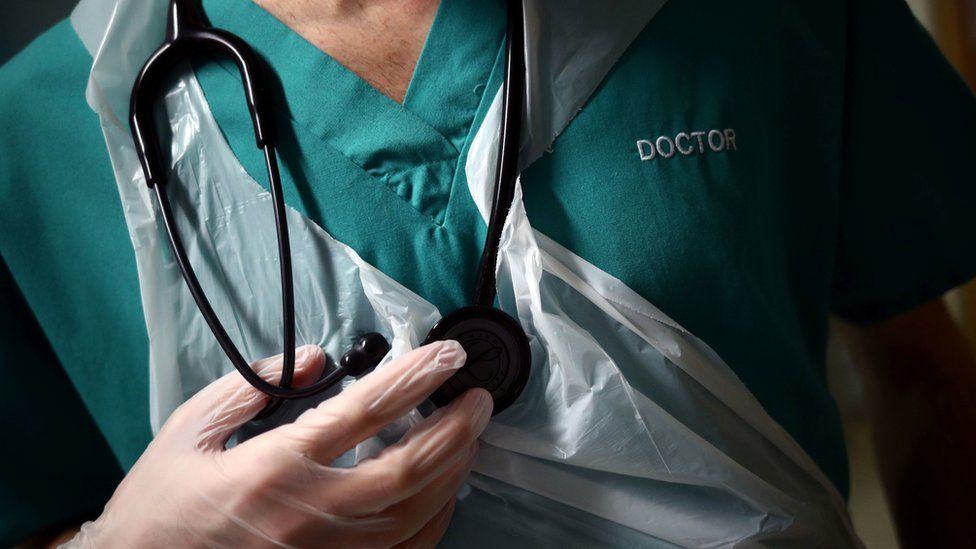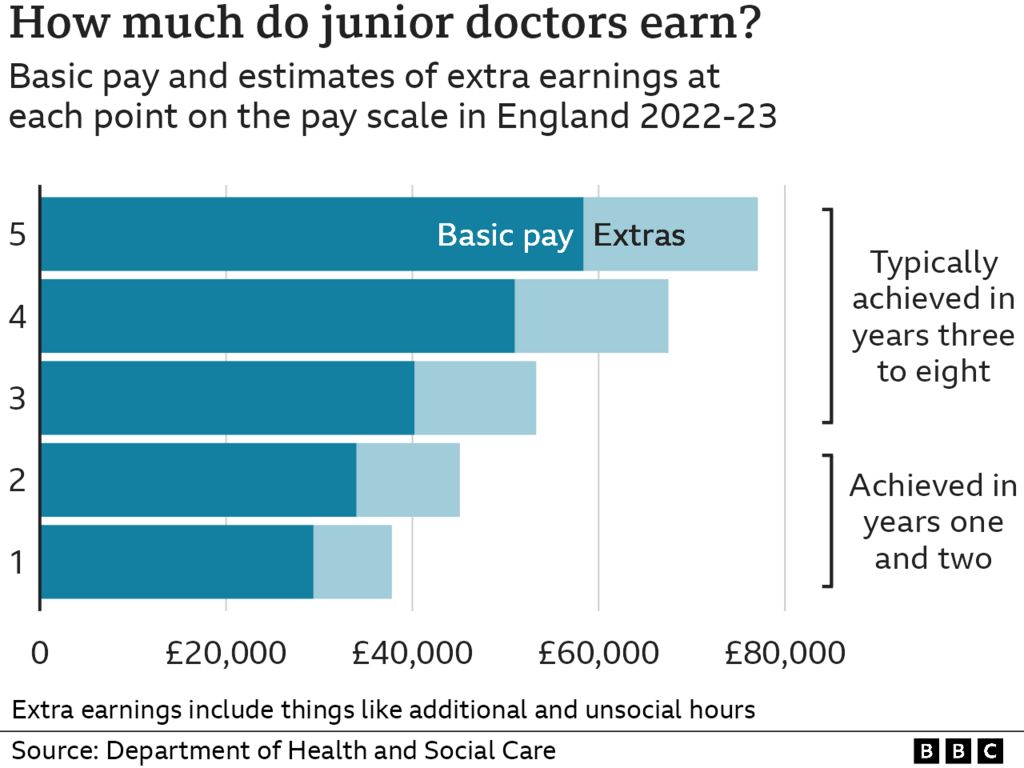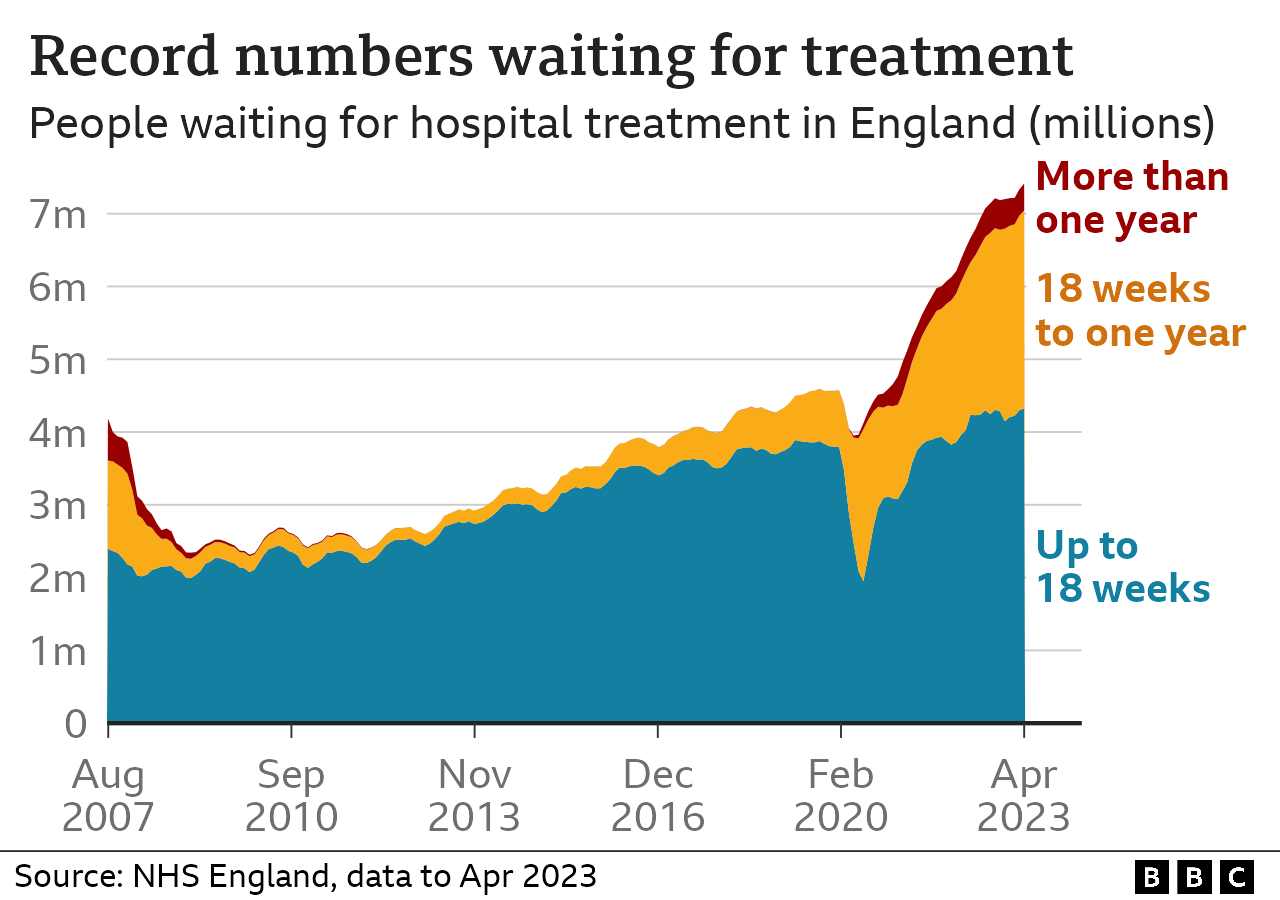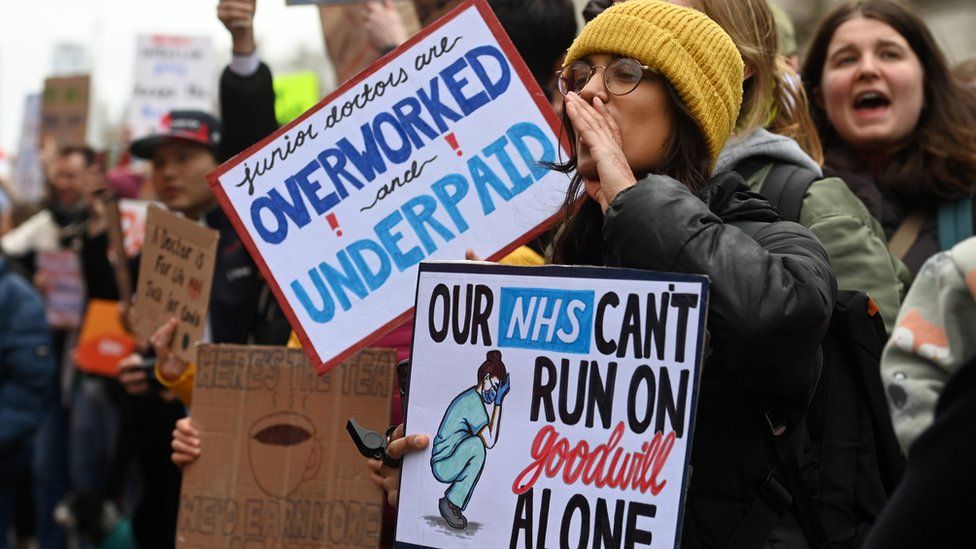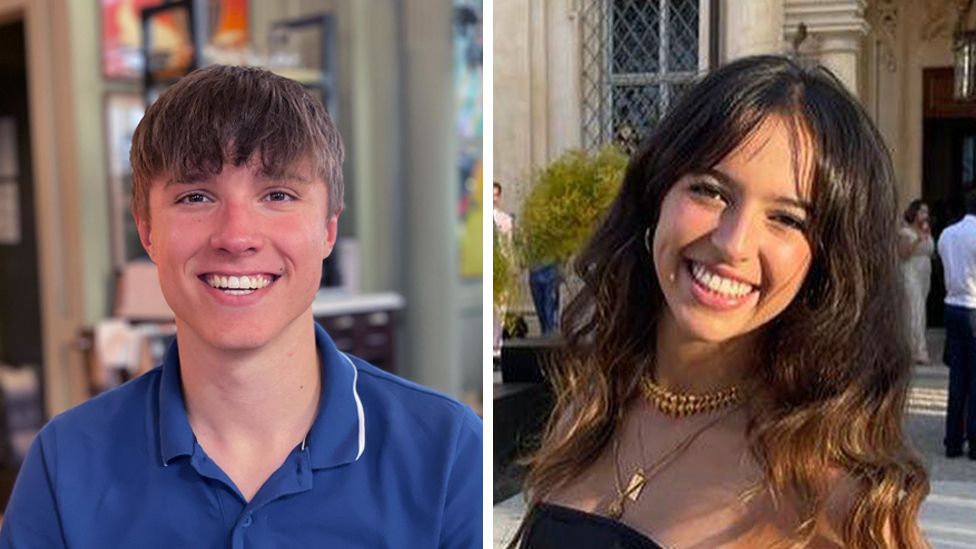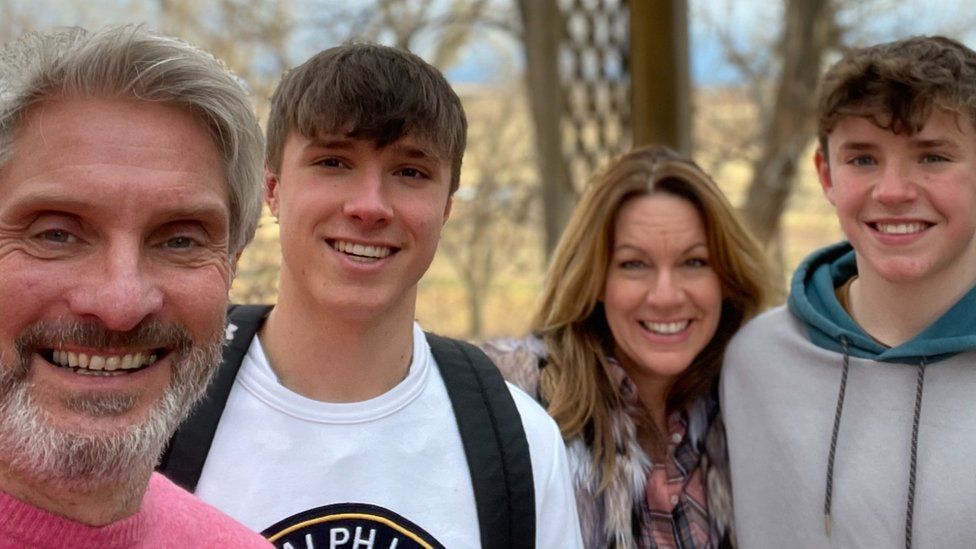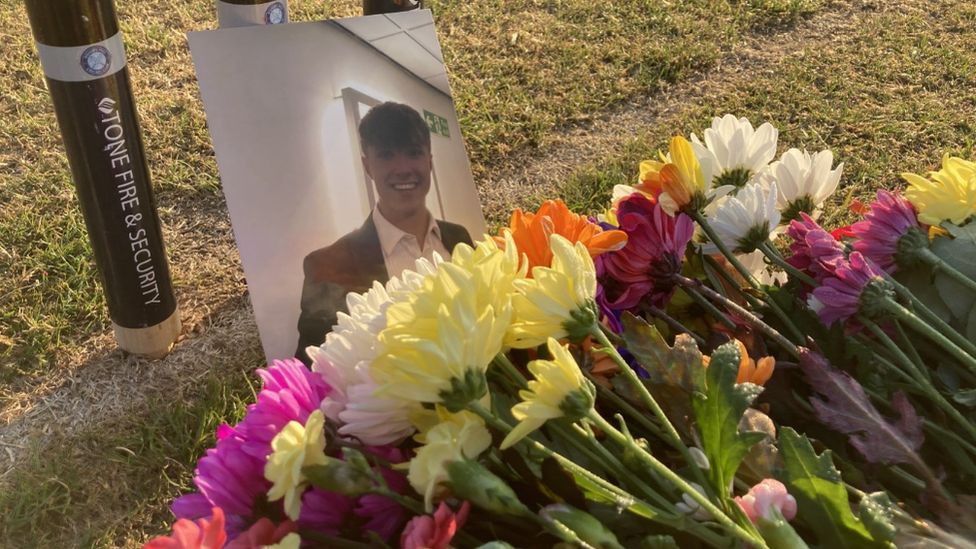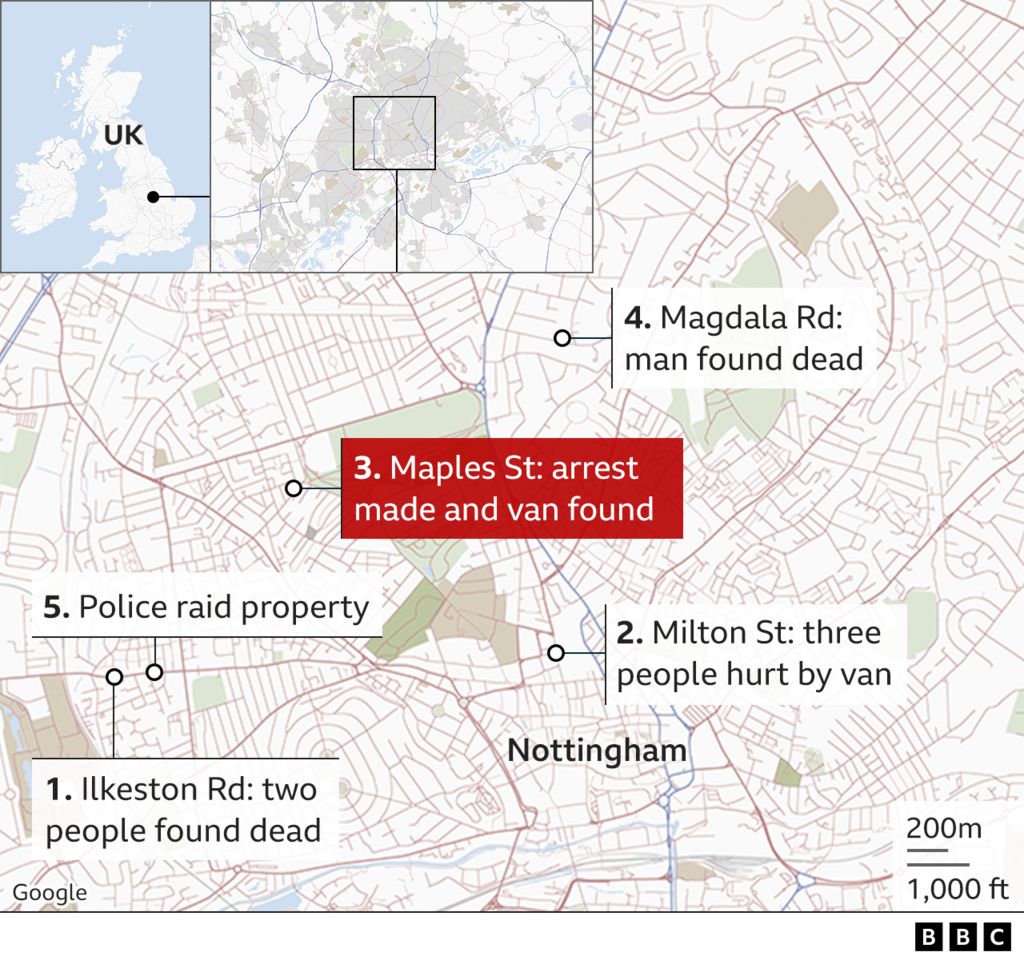The committee says, if Boris Johnson were still an MP, it would recommend a suspension for 90 days. It says that last week it was set to recommend a suspension for more than 10 sitting days, enough to trigger the recall election process. But it says it increased the hypothetical punishment in the light of his statement on Friday night, attacking the committee and its draft findings, which itself was “a very serious contempt”.
Johnson is now an ex-MP, and so a suspension punishment can no longer apply. But the committee says Johnson should not be entitled the pass normally given to former MPs allowing them access to parliament.
In its summary the committee says:
The question which the house asked the committee is whether the house had been misled by Mr Johnson and, if so, whether that conduct amounted to contempt. It is for the house to decide whether it agrees with the committee. The house as a whole makes that decision. Motions arising from reports from this committee are debatable and amendable. The committee had provisionally concluded that Mr Johnson deliberately misled the house and should be sanctioned for it by being suspended for a period that would trigger the provisions of the Recall of MPs Act 2015. In light of Mr Johnson’s conduct in committing a further contempt on 9 June 2023, the committee now considers that if Mr Johnson were still a member he should be suspended from the service of the House for 90 days for repeated contempts and for seeking to undermine the parliamentary process, by:
a) Deliberately misleading the house.
b) Deliberately misleading the committee.
c) Breaching confidence.
d) Impugning the committee and thereby undermining the democratic process of the house.
e) Being complicit in the campaign of abuse and attempted intimidation of the committee.
We recommend that he should not be entitled to a former member’s pass.
Filters BETA
A reader asks:
Is 90 days suspension unprecedented?
Almost, but not quite. If Boris Johnson were still an MP, and if he were suspended for 90 days, it would be the second longest suspension since 1979. The only longer was the six-month suspension imposed on Keith Vaz in 2019 or offering to buy drugs for sex workers and failing to cooperate with an investigation.
This Commons library note includes a table setting out all the supensions imposed on MPs since 1979.
The Liberal Democrats are calling for Boris Johnson to be stripped of the £115,000 annual allowance paid to all former prime ministers in the light of today’s report. In a statement, Daisy Cooper, the Lib Dem deputy leader, says:
This damning report should be the final nail in the coffin for Boris Johnson’s political career.
It is completely unprecedented for a former prime minister to be found to have been a law-breaker and serial liar, who treated the public and parliament with total disdain.
Rishi Sunak must cut off Johnson’s ex-prime minister allowance to stop him milking the public purse for his own personal gain.
Anything less would be an insult to bereaved families who suffered while Boris Johnson lied and partied.
Boris Johnson’s team is now circulating a 6-point analysis purportedly explaining why the privileges committee report is flawed. It does not seem to be available online, so, for the record, here it is.
1) This is a kangaroo court. The Committee has been a kangaroo court from the outset and as Lord Pannick KC has repeatedly pointed out it has acted as judge and jury in its own case in a way that is contrary to all legal practice.
2) The Committee has contradicted the police’s own findings - setting itself above the law. The Committee has been so desperate to convict Boris Johnson that it has now said that all workplace events – thank yous and birthdays and motivational meetings – were illegal. That is insane, and has no basis in the law. The committee’s view is contradicted by what the Metropolitan Police themselves found - the police said that Boris Johnson did not break the rules by attending the farewell events.
3) The Committee claims to know exactly what Boris saw at certain times and dates despite there being no evidence for this - as if the Committee were inside his head. It has been driven to claim that it knows what Boris Johnson saw with his own eyes, and that he “must have known” that the event on Dec 18 2020 was illegal because he “must have seen it” as he went up the stairs to his flat. This is just crazy. The Committee has no idea what was going on or what Boris Johnson saw. In fact, he saw nothing that struck him as being remotely untoward. The Committee is just making things up.
4) If Boris Johnson must have known this was illegal, others did too - the Committee’s logic is that dozens of other figures also knew. The committee’s entire argument is that Boris Johnson “Must have known” that events were illegal. This is rubbish. If Boris Johnson must have known, then what about Rishi Sunak, Simon Case, Sue Gray and all the other senior figures who were roving the corridors of Downing Street? Why didn’t they know?
5) The report uses slight of hand by mischaracterising Boris’s statements. The Committee continually twists what Boris Johnson said in the House, claiming that he was offering general comments when he was in fact talking about specific events.
6) How is this process fair - especially given allegations that Committee members were at rule breaking events? If all thank-yous and birthdays were illegal, then how does Sir Bernard Jenkin justify his attendance at his wife’s birthday party, where the rules seem plainly to have been broken?
In paragraph 95, on page 31 of the report, the privileges committee says that in May the government gave it new evidence relating to 16 events at Chequers or No 10 where lockdown rules may have been broken. This information came from Boris Johnson’s diaries, which were being reviewed by lawyers preparing material for the Covid inquiry. The committee says it was told the entries were “problematic” and that this was “based on an assessment by Government Legal Department as to events/activities which could reasonably be considered to constitute breaches of Covid Regulations”.
The committee says it asked Johnson about these events. Johnson’s lawyers said:
Each event was lawful for one or more of the following reasons: the gathering was reasonably necessary for work purposes; the gathering took place outside; the rule of six applied at the time; the linked household provisions applied; the linked childcare provisions applied; and/or emergency assistance and/or care/assistance was being provided to a vulnerable (pregnant) person.
The committee says it has no evidence to disprove this, and that it decided not to investigate futher. But it says that, if it were to turn out that Johnson’s explanations were not true, then he might have committed a further contempt.
Mr Johnson has provided, under a statement of truth, explanations of the 16 events referred to in the recent material submitted to us by the Government. We have no evidence conflicting with his account. We do not wish to incur the further delay to our inquiry that would result from a detailed investigation of these events, and therefore we treat Mr Johnson’s explanations as prima facie true. If for any reasons it subsequently emerges that Mr Johnson’s explanations are not true, then he may have committed a further contempt.
Boris Johnson has issued a 1,700-word rebuttal to the committee. It reads more like a Telegraph column, than a legal document, and it amounts to a wholesale, and bitterly angry, rejection of what the committee is saying. Here are some of the key points.
I believed that we were working, and we were: talking for the main about nothing except work, mainly covid. Why would I have set out, in the Chamber, to conceal my knowledge of something illicit, if that account could be so readily contradicted by others? Why would we have had an official photographer if we believed we were breaking the law?
We didn’t believe that what we were doing was wrong, and after a year of work the Privileges Committee has found not a shred of evidence that we did.
Their argument can be boiled down to: ‘Look at this picture – that’s Boris Johnson with a glass in his hand. He must have known that the event was illegal. Therefore he lied.”
That is a load of complete tripe. That picture was me, in my place of work, trying to encourage and thank my officials in a way that I believed was crucial for the government and for the country as a whole, and in a way which I believed to be wholly within the rules …This report is a charade. I was wrong to believe in the Committee or its good faith. The terrible truth is that it is not I who has twisted the truth to suit my purposes. It is Harriet Harman and her Committee.
This is a dreadful day for MPs and for democracy. This decision means that no MP is free from vendetta, or expulsion on trumped up charges by a tiny minority who want to see him or her gone from the Commons.
I do not have the slightest contempt for parliament, or for the important work that should be done by the Privileges Committee.
But for the Privileges Committee to use its prerogatives in this anti-democratic way, to bring about what is intended to be the final knife-thrust in a protracted political assassination – that is beneath contempt.
He says that he genuinely believed that leaving events he attended at Downing Street were justified under the Covid rules. The committee says he ignored the fact that social distancing rules were not being followed, and that, when he claimed in-person leaving dos were allowed at the time, he was in effect rewriting the rules after the event. (See 9.13am.) Johnson claims this is wrong. He says:
I knew exactly what events I had attended in Number 10. I knew what I had seen, with my own eyes, and like the current PM, I believed that these events were lawful. I believed that my participation was lawful, and required by my job; and that is indeed the implication of the exhaustive police inquiry.
The only exception is the June 19 2020 event, the so-called birthday party, when I and the then Chancellor Rishi Sunak were fined in circumstances that I still find puzzling (I had lunch at my desk with people I worked with every day).
So when on Dec 1 2021 I told the House of Commons that “the guidance was followed completely” (in Number Ten) I meant it. It wasn’t just what I thought: it’s what we all thought – that we were following the rules and following the guidance completely – notwithstanding the difficulties of maintaining social distancing at all times.
The committee now says that I deliberately misled the House, and at the moment I spoke I was consciously concealing from the House my knowledge of illicit events.
This is rubbish. It is a lie. In order to reach this deranged conclusion, the Committee is obliged to say a series of things that are patently absurd, or contradicted by the facts.
They say that I must have known that the farewell events I attended were not authorised workplace events because – wait for it – NO SUCH EVENT could lawfully have taken place, anywhere in this country, under the Committee’s interpretation of covid rules. This is transparently wrong. I believed, correctly, that these events were reasonably necessary for work purposes. We were managing a pandemic. We had hundreds of staff engaged in what was sometimes a round-the-clock struggle against covid. Their morale mattered for that fight. It was important for me to thank them.
The Committee cannot possibly believe the conclusions of their own report – because it has now emerged that Sir Bernard Jenkin attended at least one “birthday event”, on Dec 8 2020 – the birthday of his wife Anne – when it is alleged that alcohol and food were served and the numbers exceeded six indoors.
Why was it illegal for me to thank staff and legal for Sir Bernard to attend his wife’s birthday party?
The hypocrisy is rank. Like Harriet Harman, he should have recused himself from the inquiry, since he is plainly conflicted.
He dismisses the committee’s suggestion that he must have known a party took place in the No 10 press office on 18 December 2020 because he walked past it. See paragraph 83, on page 28 of the report. Commenting on it, Johnson says:
Perhaps the craziest assertion of all is the Committee’s Mystic Meg claim that I saw the Dec 18 event with my own eyes. They say, without any evidence whatever, that at 21.58pm, on that date, my eyes for one crucial second glanced over to the media room as I went up to the flat – and that I saw what I recognised as an unauthorised event in progress …
First, the Committee has totally ignored the general testimony about that evening, which is that people were working throughout, even if some had been drinking at their desks. How on earth do these clairvoyants know exactly what was going on at 21.58 …It is a measure of the Committee’s desperation that they are trying incompetently and absurdly to tie me to an illicit event – with an argument so threadbare that it belongs in one of Bernard Jenkin’s nudist colonies.
Their argument is that I saw this event, believed it to be illegal, and had it in my head when I spoke to the House. On all three counts they are talking out of the backs of their necks. If I did see an illegal event, and register it as illegal, then why was I on my own in this? Why not the Cabinet Secretary, or Sue Gray, or the then Chancellor, who was patrolling the same corridors at the time?
Jenkin is, or in the past used to be, a naturist.
The committee says, if Boris Johnson were still an MP, it would recommend a suspension for 90 days. It says that last week it was set to recommend a suspension for more than 10 sitting days, enough to trigger the recall election process. But it says it increased the hypothetical punishment in the light of his statement on Friday night, attacking the committee and its draft findings, which itself was “a very serious contempt”.
Johnson is now an ex-MP, and so a suspension punishment can no longer apply. But the committee says Johnson should not be entitled the pass normally given to former MPs allowing them access to parliament.
In its summary the committee says:
The question which the house asked the committee is whether the house had been misled by Mr Johnson and, if so, whether that conduct amounted to contempt. It is for the house to decide whether it agrees with the committee. The house as a whole makes that decision. Motions arising from reports from this committee are debatable and amendable. The committee had provisionally concluded that Mr Johnson deliberately misled the house and should be sanctioned for it by being suspended for a period that would trigger the provisions of the Recall of MPs Act 2015. In light of Mr Johnson’s conduct in committing a further contempt on 9 June 2023, the committee now considers that if Mr Johnson were still a member he should be suspended from the service of the House for 90 days for repeated contempts and for seeking to undermine the parliamentary process, by:
a) Deliberately misleading the house.
b) Deliberately misleading the committee.
c) Breaching confidence.
d) Impugning the committee and thereby undermining the democratic process of the house.
e) Being complicit in the campaign of abuse and attempted intimidation of the committee.
We recommend that he should not be entitled to a former member’s pass.
And this is what the committee says in its summary about why it thinks Boris Johnson deliberately misled MPs about Partygate.
We considered the nature and extent of Mr Johnson’s culpability in misleading the house. In coming to the conclusion that Mr Johnson deliberately misled the house, we considered:
a) His repeated and continuing denials of the facts, for example his refusal to accept that there were insufficient efforts to enforce social distancing at gatherings where a lack of social distancing is documented in official photographs, and that he neither saw nor heard anything to alert him to the breaches that occurred.
b) The frequency with which he closed his mind to those facts and to what was obvious so that eventually the only conclusion that could be drawn was that he was deliberately closing his mind.
c) The fact that he sought to rewrite the meaning of the rules and guidance to fit his own evidence, for example, his assertion that “imperfect” social distancing was perfectly acceptable when there were no mitigations in place rather than cancelling a gathering or holding it online, and his assertion that a leaving gathering or a gathering to boost morale was a lawful reason to hold a gathering.
d) His own after-the-event rationalisations, for example the nature and extent of the assurances he received, the words used, the purpose of the assurances, who they came from, the warning he received about that from Martin Reynolds (his principal private secretary) and his failure to take advice from others whose advice would have been authoritative. His view about his own fixed-penalty notice (that he was baffled as to why he received it) is instructive.
We came to the view that some of Mr Johnson’s denials and explanations were so disingenuous that they were by their very nature deliberate attempts to mislead the Committee and the house, while others demonstrated deliberation because of the frequency with which he closed his mind to the truth.
This is what the report summary says about what the committee concluded.
We established that Mr Johnson:
a) had knowledge of the Covid rules and guidance.
b) had knowledge of breaches of the rules and guidance that occurred in No 10.
c) misled the house:
i) when he said that guidance was followed completely in No 10, that the rules and guidance were followed at all times, that events in No 10 were within the rules and guidance, and that the rules and guidance had been followed at all times when he was present at gatherings.
ii) when he failed to tell the house about his own knowledge of the gatherings where rules or guidance had been broken.
iii) when he said that he relied on repeated assurances that the rules had not been broken. The assurances he received were not accurately represented by him to the house, nor were they appropriate to be cited to the house as an authoritative indication of No 10’s compliance with Covid restrictions.
iv) when he gave the impression that there needed to be an investigation by Sue Gray before he could answer questions when he had personal knowledge that he did not reveal.
v) when he purported to correct the record but instead continued to mislead the house and, by his continuing denials, this committee.
d) was deliberately disingenuous when he tried to reinterpret his statements to the house to avoid their plain meaning and reframe the clear impression that he intended to give, namely
i) when he advanced unsustainable interpretations of the rules and guidance to advance the argument that the lack of social distancing at gatherings was permissible within the exceptions which allowed for gatherings, and
ii) when he advanced legally impermissible reasons to justify the gatherings.
The Commons privileges committee report in Boris Johnson has now been published. It is here.

There are not a lot of Tory MPs willing to publicly defend Boris Johnson any more, but one of them is Sir Michael Fabricant, and on the Today programme he gave an interview suggesting the privileges committee was biased against Johnson.
Asked if he trusted parliament to judge Johnson, Fabricant replied:
I trust parliament but of course I’m not so sure that I trust the privileges committee.
Why do I say that? I actually sat in while Boris Johnson gave evidence. Now, you’ve got to understand that the committee sits in a quasi-judicial role. It’s there to dispassionately make a judgment.
I looked at the members of the committee. Some of them behaved in a totally proper way. Others were pulling faces, were looking heavenwards, were indicating they didn’t agree with what Boris was saying. You know, I was quite shocked actually by the behaviour of some of the members of the privileges committee.
On the subject of bias, Fabricant was then asked by the presenter, Nick Robinson, if he thought there was a link between his willingness to repeatedly defend Johnson and the fact that Johnson ensured he got a knighthood in the resignation honours published last week. Fabricant said he thought this topic would come up. But, in his reply, he implied that the knighthood was nothing to do with his pro-Johnson media appearances.
He told Robinson:
You know, I’ve served the people of Lichfield for 31 years. I’ve been on the government or opposition front benches for about nine years. I helped save, when there was an issue over tax, the National Memorial Arboretum. I helped move HS2 from going by a housing estate. A number of people have said that they are surprised it took so long.
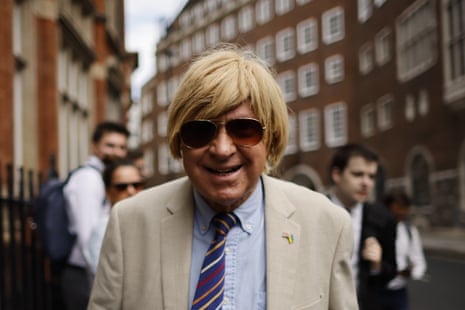
The Conservative MP Tobias Ellwood, who chairs the Commons defence committee, has criticised Boris Johnson for the way he attacked Sir Bernard Jenkin, a Conservative member of the privileges committee, last night. Ellwood said that if Johnson had complaints about the process, he should have stayed on as an MP, and made a statement in the chamber, instead of resigning.
Ellwood told Sky News:
If Boris Johnson is unhappy with the committee’s findings, or indeed anybody on the committee, the personalities and so forth, he could easily have made a personal statement in the Commons – that’s the process – and presented his arguments prior to a full vote from the house, because it will be for the house to determine whether they support this publication or not.
He’s chosen to abandon all those possible avenues of approach and quit parliament in its entirety.
Now coming late in the day and saying ‘I’m unhappy with this individual’, this isn’t the process of somebody I believe is going to win the argument.
Ellwood also said he hoped the Johnson “pantomime” would soon end. He said:
Johnson’s confidence stemmed from the huge support he received from the party base. He was loved by members across the country but this is changing before our very eyes. There’s now disappointment, even anger that the party, the activists are left to pick up the pieces …
The longer this public pantomime drags on, the more Boris loses support from a once very loyal base … the more the prime minister’s plans and vision which was starting to gain traction are overshadowed, the public actually want us to get back to politics.
Rishi Sunak was on visit in Harrow this morning, where he witnessed an immigration raid. Asked about the privileges committee report into Boris Johnson, he said he had not seen it yet and that it would not be right to comment.
Asked if he would give an interview later, after he had had time to read it, Sunak replied:
You are talking about a report that I haven’t seen and that no one else has seen. It wouldn’t be right to comment on it in advance of it coming out and being published.
These are matters for the House of Commons, and parliament will deal with it in the normal way that it does.
The reference to parliament dealing with this report “in the normal way that it does” suggests that ITV’s Robert Peston was right yesterday when he said that the government will table a motion asking the Commons to approve the privileges committee report, and that a plan to instead have a debate on a motion just saying the Commons has noted the report has been dropped.
Sunak was also asked if he was “frustrated” by Johnson’s interventions in the past week. He replied:
No, I’m just getting on with delivering for the country.
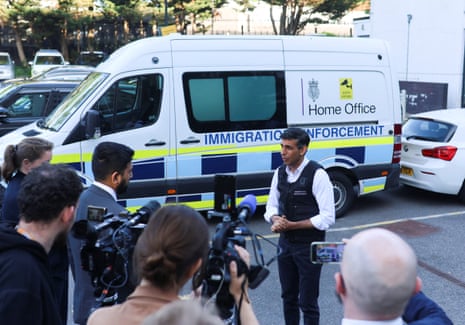
Good morning. In a post on his Substack blog last year Dominic Cummings, who was Boris Johnson’s chief adviser in No 10 and the strategist who did as much as anyone to help him win the 2019 general election, before he resigned and devoted his efforts to bringing Johnson down, wrote this about Johnson’s relationship with the truth.
He rewrites reality in his mind afresh according to the moment’s demands. He lies – so blatantly, so naturally, so regularly – that there is no real distinction possible with him, as there is with normal people, between truth and lies. He always tells people what they want to hear and he never means it. He always says: ‘I can’t remember’ when they remind him and is rarely ‘lying’.
Johnson misled MPs when he told them that the Covid rules and guidelines were followed in No 10 at all times. But last year, as the Partygate scandal was engulfing his administration and before he stood down, the Commons voted to get the privileges committee to conduct an investigation into whether he had done this deliberately (ie, lied), or at least recklessly. Today we will get its report.
Advance stories suggest the verdict will be grim. Yesterday the Times said the privileges committee would conclude that Johnson “deliberately misled parliament over the Downing Street parties scandal”. This morning the Financial Times says it will say he “committed ‘multiple’ contempts of parliament”. We’ll be able to read it for ourselves very soon, because it is due out at about 9am.
Because of the role he played in Brexit (many people think the leave campaign would have lost if he had not been leading it), Johnson has been one of the most consequential prime ministers of the modern era. Today’s report will significantly shape how he is remembered.
As Aubrey Allegretti reports, last night Johnson launched a fierce attack on one of the committee’s Tory members, accusing him in effect of hypocrisy.
Today we will be focusing almost exclusively on the report, and reaction to it. It is due out soon and later, during business questions in the Commons after 10.30am, Penny Mordaunt, the leader of the Commons, is expected to give details of when MPs will debate the report.
If you want to contact me, do try the “send us a message” feature. You’ll see it just below the byline – on the left of the screen, if you are reading on a PC or a laptop. This is for people who want to message me directly. I find it very useful when people message to point out errors (even typos – no mistake is too small to correct). Often I find your questions very interesting too. I can’t promise to reply to them all, but I will try to reply to as many as I can, either in the comments below the line, privately (if you leave an email address and that seems more appropriate), or in the main blog, if I think it is a topic of wide interest.
https://news.google.com/rss/articles/CBMiiAFodHRwczovL3d3dy50aGVndWFyZGlhbi5jb20vcG9saXRpY3MvbGl2ZS8yMDIzL2p1bi8xNS9ib3Jpcy1qb2huc29uLXBhcnR5Z2F0ZS1wcml2aWxlZ2VzLWNvbW1pdHRlZS1yZXBvcnQtY29uc2VydmF0aXZlcy11ay1wb2xpdGljcy1saXZl0gGIAWh0dHBzOi8vYW1wLnRoZWd1YXJkaWFuLmNvbS9wb2xpdGljcy9saXZlLzIwMjMvanVuLzE1L2JvcmlzLWpvaG5zb24tcGFydHlnYXRlLXByaXZpbGVnZXMtY29tbWl0dGVlLXJlcG9ydC1jb25zZXJ2YXRpdmVzLXVrLXBvbGl0aWNzLWxpdmU?oc=5
2023-06-15 08:59:00Z
2128146545
